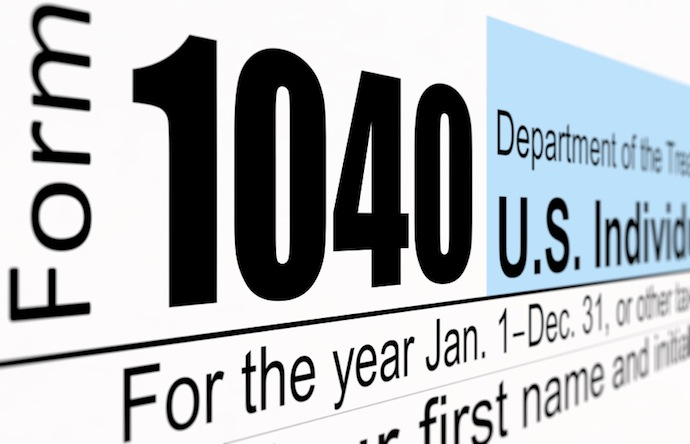What’s covered in this article – click on a link to learn more:
- What Are Moving Expenses?
- Are Moving Expenses Tax Deductible?
- Who Qualifies For Moving Deductions?
- Employer Paid Move?
- What Moving Expenses Are Tax Deductible?
- What Moving Expenses Are Not Tax Deductible?
- How To Deduct Moving Expenses
- Ways To Save On Your Move
Moving to a new home can be an exciting yet daunting endeavor. Whether you’re relocating for a job, family reasons, or simply for a change of scenery, the costs associated with moving can quickly add up. You may be wondering if there are tax considerations that can help ease the financial burden of your move. Are moving expenses tax deductible? In this comprehensive guide, we’ll explore everything you need to know about moving expenses and tax deductions, from what qualifies as a deductible expense and the Internal Revenue Service (IRS) guidelines for who can deduct them.
What Are Moving Expenses?
Before diving into the tax implications, it’s crucial to understand what moving expenses entail. Moving expenses typically refer to the costs associated with relocating your home or workplace, including packing and transportation of household goods, travel expenses (rental truck, mileage or gas costs), insurance, and temporary storage. Lodging comes with one stipulation: if the move requires you travel a long distance, you may be able to deduct the cost of staying in a hotel for only one night (this does not include any meal expenses). The expenses associated with a move can quickly accumulate, which is why most people ask the question, ‘Can I deduct moving expenses on my tax return?’
Are Moving Expenses Tax Deductible?
Unfortunately, the number of people who used to benefit from deducting moving expenses shrunk considerably with the passing of the Tax Cuts and Jobs Act (TCJA) of 2017.
The Tax Cuts and Jobs Act (TCJA) of 2017 introduced significant changes to the tax code, eliminating the deduction for moving expenses for most taxpayers between 2018 and 2025, except for certain members of the Armed Forces and their families. Prior to 2018, many people who moved for work would qualify for a relocation tax deduction.
Simply put, now moving expenses are deductible only for members of the military which means there are specific criteria you must meet to qualify for this deduction. It’s important to consult the IRS guidelines or talk with a tax professional to ensure you’re compliant, but let’s discuss who can still claim moving expense deductions.
Only for Active-Duty Military Members
IRS Form 3903 says “you can deduct moving expenses only if you are a Member of the Armed Forces on active duty and, due to a military order, you, your spouse, or your dependents move because of a permanent change of station.
Active-duty military personnel have unique considerations when it comes to moving expenses. The IRS allows members of the armed forces to deduct certain moving expenses, even if they don’t meet the usual distance and time tests. This exception recognizes the frequent relocations that military service often requires. However, there are specific criteria to meet, so ask yourself these questions to see if you qualify:
- Are you an active-duty military member who permanently moved to a new base in compliance with a military order?
- Are you the dependent or spouse of a military member who moved for a permanent change of station?
- Did you recently retire from active duty and move within one year of retiring?
- Are you the spouse or dependent of a military member who died, was imprisoned or deserted?
Why Non-Military Are No Longer Able to Deduct Moving Expenses as of 2018
As of 2018, the TCJA eliminated the moving expense deduction for most non-military taxpayers. Under the previous tax law, individuals could deduct qualified moving expenses if they met certain distance and time tests. The old rules allowed you to qualify if:
- Your employer didn’t pay or reimburse the moving costs and exclude the amount from your income.
- Your new work location was a specific distance from your former home.
- Depending on your employment status, you met a certain amount of time worked in the first one to two years after the move.
The new law, however, restricts this deduction to active-duty military personnel only. This change significantly impacts the tax benefits associated with moving, making it important to plan and budget accordingly.
Tip: If you aren’t someone who meets the current IRS guidelines, there may be one exception to the rule. Did you move prior to 2018? If you did and neglected to deduct related moving expenses, you may be able
What If the Employer Paid for My Move?
As a reminder, if you aren’t a military member on active duty, you won’t be able to deduct any moving expenses. Did your employer pay for your move? If your employer covered some or all of your moving expenses, it’s essential to understand the tax implications. Under the TCJA, employer-paid moving expenses are considered taxable income, meaning you’ll probably need to report them on your tax return. However, there is an exception for active-duty military personnel who receive moving expense reimbursements from the government. To be on the safe side, talk with your tax professional to ensure accurate reporting and to understand any potential offsets or deductions.
Which Moving Expenses Are Tax Deductible?
For those who can still claim moving expense deductions (primarily active-duty military), it’s crucial to know which expenses qualify. According to the IRS guidelines, here are the moving expenses that may be deductible (if they have not been reimbursed or furnished in kind):
| Moving household goods and personal effects | Storing and insuring household goods and personal effects | Travel |
|---|---|---|
| You can deduct expenses for hauling a trailer, packing, crating, in-transit storage, and insurance. You cannot deduct expenses for moving furniture or other goods you bought going from your old home to your new home. | You can deduct the cost of storing and insuring your household goods and personal effects after 30 consecutive days after they have been moved from your former home and before they are delivered to your new home. | You can deduct the following expenses related to traveling from your old home to you new home:
You must keep a detailed record of your out-of-pocket expenses related to your car if you plan to deduct them. The standard mileage rate is 22 cents a mile (as of June 30, 2022). |
Which Moving Expenses Are Not Tax Deductible?
On the flip side, some moving expenses are not eligible for tax deductions, even for active-duty military personnel. These non-deductible expenses may include:
- Moving expenses provided by the government.
- Expenses that were reimbursed by an allowance that wasn’t included as income.
- Any part of the purchase price of your new home.
- Car tags or driver’s license.
- Expenses related to buying or selling a home (closing costs, home improvements, mortgage fees or penalties, loss on the sale of the home, real estate taxes, security, deposits, etc.)
- Expenses related to entering into or breaking a lease.
- General repairs, maintenance, insurance, or depreciation for your car.
- “Lavish side trips and extravagant lodging.”
- Return trips to your former residence.
- Storage charges outside of what incurred in transit and for foreign moves.
How Do I Deduct Moving Expenses?
If you meet the eligibility criteria for deducting moving expenses, follow these steps to ensure you claim the deduction correctly:
| Step 1: Keep detailed records | Maintain thorough records of all your moving expenses, including receipts, invoices, and documentation of the distances traveled. |
| Step 2: Calculate eligible deductions | You’ll need to split the expenses into categories for transportation and storage of your belongings and travel (not including meals). |
| Step 3: Fill out Form 3903 | Once you’ve calculated your totals for the two categories and added them to line 1 and 2, respectively, total lines 1 and 2. Enter the amount the government paid you for the expenses listed on lines 1 and 2 that is not included in box 1 of your Form W-2 (wages). It should be shown in box 12 of your Form W-2 with code P. |
|
Step 4: Calculate your deductions | Is line 3 more than line 4?
|
Ways to Save on Your Move
While the TCJA has limited moving expense deductions for many individuals, there are still ways to save on your move:
- Plan ahead: Start planning and budgeting for your move well in advance to minimize unexpected expenses.
- Compare moving companies: Get quotes from multiple moving companies to find the most cost-effective option.
- Downsize: Reduce the number of items you need to move by decluttering and selling or donating items you no longer need.
- Pack yourself: Consider packing your belongings yourself to save on packing and labor costs.
- Research tax credits: Explore other tax credits or deductions that may be available to you, such as the home office deduction or energy efficiency credits.
While the tax landscape for moving expenses has changed significantly in recent years, it’s still essential to understand the potential deductions and implications associated with your move. If you’re an active-duty military member, you may still be eligible for moving expense deductions, so be sure to consult with a tax professional to maximize your tax benefits. For everyone else, careful planning and cost-saving strategies can help ease the financial burden of your move, even without tax deductions.





